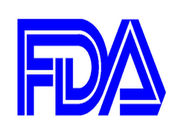And, efficacy of drugs granted accelerated approval often confirmed only years after approval
TUESDAY, Aug. 15, 2017 (HealthDay News) — Many studies used to support U.S. Food and Drug Administration approval of high-risk medical device modifications are not controlled; and efficacy of drugs granted accelerated approval is often confirmed three years after approval, according to two studies published in the Aug. 15 issue of the Journal of the American Medical Association.
Sarah Y. Zheng, M.D., from the University of California in San Francisco, and colleagues characterized the quality of the clinical studies and data used to support FDA approval of panel-track supplements. The researchers found that 83 clinical studies supported the approval of 78 panel-track supplements, with 91 percent supported by a single study. There were 150 primary end points, and 38 percent were compared with controls. Of the primary end points with controls, six and 51 were retrospective and active controls, respectively.
Huseyin Naci, Ph.D., M.H.S., from the London School of Economics, and colleagues characterized preapproval and confirmatory clinical trials of drugs granted accelerated approval. The researchers found that the FDA granted approval to 22 drugs for 24 indications between 2009 and 2013. Thirty preapproval studies supported the 24 indications. The median number of participants enrolled in preapproval studies was 132. Fifty percent of the 38 required confirmatory studies were completed at a minimum three years of follow-up.
“It is now time to seriously consider how to use these increasingly robust data and analytic capabilities and more efficient prospective research systems to deal with the issues raised in these articles,” write the authors of an accompanying editorial.
Abstract/Full Text – Zheng (subscription or payment may be required)
Abstract/Full Text – Naci (subscription or payment may be required)
Editorial (subscription or payment may be required)
Copyright © 2017 HealthDay. All rights reserved.








